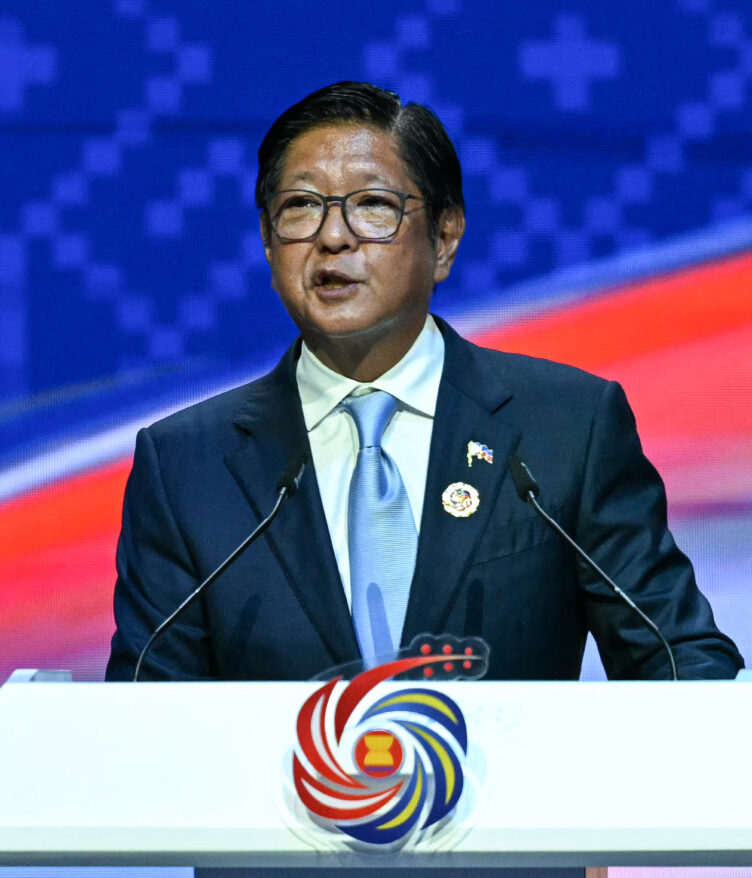IS it the end of anonymous posting as we know it?
Last February 25, 2025, Malacañang released a statement expressing support for a proposed bill aiming to penalize the spread of fake news. Framed as a necessary step to protect the public from disinformation and online scams, the move has reignited debates on digital freedom, privacy, and the future of online expression.
Adding fuel to the conversation, Palace Press Officer and Presidential Communications Office Undersecretary Atty. Claire Castro suggested implementing a government registration system for all content creators. According to her, such a registry would make it easier to hold individuals accountable for fake news and other harmful contents.
For a generation that grew up in the digital age, with stan accounts and anonymous confession pages, this topic hits closer to home. In theory, registration seems to be a practical solution. But putting it in practice raises the alarm, especially when it comes to maintaining the freedom of speech and safety in these anonymous spaces.
And so, as the idea is left for us to ponder, republicasia asked Gen Zs what they think of the matter at hand.
Gen Z skepticism
When asked about what they think of the ‘Content Creator’ registration, Jeremiah Inocencio (24) and Mikko Belenia (24) both expressed their skepticism.
For Jeremiah, the rationale behind the ‘Content Creator’ registration remains vague.
“Siguro tanong muna, para saan ang registration? Necessary pa ba yun kung may unique IP address naman bawat device? Ano bang issue o problem ang isosolve nung registration na yun,” he asked.
“Di naman directly matitigil ang fake news or iba pang online crimes kahit iregister pa yung mga accounts. Pagalingan ng narratives ang labanan sa mga propaganda like fake news. Mas mabuti pang turuan na lang yung mga tao na magsuri on their own kaysa palitawin kung ano o sino dapat ang pakinggan at paniwalaan,” he added.
For Mikko, who is an artist, musician, and a content creator himself, the registration spells worry, especially when it comes to the discussion of privacy.
“It worries me quite a bit, especially since these accounts are often private. Some accounts prefer not to share their location and other details but not for nefarious reasons naman. I believe it’s not necessary since the internet is vast and should not be put under any outside registry, kaya nga may kanya-kanyang database ang websites,” he said.
Like Jeremiah, he doesn’t believe that a registry would be the most effective solution when it comes to dealing with fake news.
“Fake News as it stands, is not an issue of identity fraud or kung ano man na related to social media. It is an issue of power, propaganda and lack of internet literacy,” he said.
Fake news prevention or a form of control?
During the interview, Gen Z’s skepticism centers not just on whether registration would be effective, but on questioning its true purpose.
“I think it’s leaning to a form of control,” said Mikko. “In terms of power, anyone na malakas at may pera can control news outlets or any account as they please. Sa propaganda naman, people will always believe what they want to believe. Having a registry on accounts will not affect the flow of fake news.”
He added that the suggestion could obstruct digital freedom.
“Digital Freedom for me is not being controlled by the media sa internet. And with the registry, I believe it is. In the back of your head, you’re thinking na someone is watching you. ‘Yung sinasabi na ‘bakit ka matatakot kung wala ka namang kasalanan’ is not applicable here, lalo na kung privacy and usapan,” said Mikko.
Jeremiah echoed the same sentiments, as he believed that his digital freedom would come “under threat” if such a registration would exist.
“Under threat kasi lumakas ang mga propagandists na nagtu-twist ng katotohanan, plus I think aversive pa rin tayo sa matinong diskurso. Sana palakasin in a just manner ‘yung existing laws or policies regarding libel and slander para maging safe and responsible space ang online communities,” he pondered.
Regulation vs. Freedom of Speech
But in a world where freedom of speech is so often abused, can regulation and free expression truly coexist?
“I think, ideally, oo, especially if the regulations are what they seem to be. In an ideal world naman talaga, combatting fake news and regulation of accounts under a good government is an amazing world to live in, people believe in the facts gano’n,” said Mikko.
But both he and Jeremiah don’t think that the current atmosphere in the Philippine government is ideal to set such regulations in motion.
“But sa Philippine context, expecially na ung mga taong nakaupo, may mga kriminal may mga corrupt, ung iba no regard sa mga tao, it is a big fat no for the Philippines,” said Mikko. “How can they assure na tama and fair ang regulations na ito if they themselves are in a constant display of bad behaviours ‘di ba?”
For Jeremiah, the burden of combatting fake news should not be put on the shoulders of the individuals but rather, the big companies that allow them to thrive.
“Ang middle ground na naiisip ko, maging strict ang government sa big companies na namamahala sa social media. Hold them accountable and responsible sa repercussions ng posts sa bakuran nila,” he said.
“Wag yung individuals ang habulin, yung company na lang mismo. Almost boundless ang kaya nilang [companies] gawin. Ang account user, bound siya sa terms and conditions ng platform.”
In the end, the problem is not really on the regulations— it is on the system that implements them. At the heart of the Gen Zs, they’re not really worried about following the rule, but they do question on what purposes it might be exploited.
They’re asking the bigger question: In a country still struggling with transparency, justice, and trust, who’s really benefitting from these rules—and who’s being told to shut up?
How useful was this post?
Click on a star to rate it!
Average rating 0 / 5. Vote count: 0
No votes so far! Be the first to rate this post.
We are sorry that this post was not useful for you!
Let us improve this post!
Tell us how we can improve this post?







